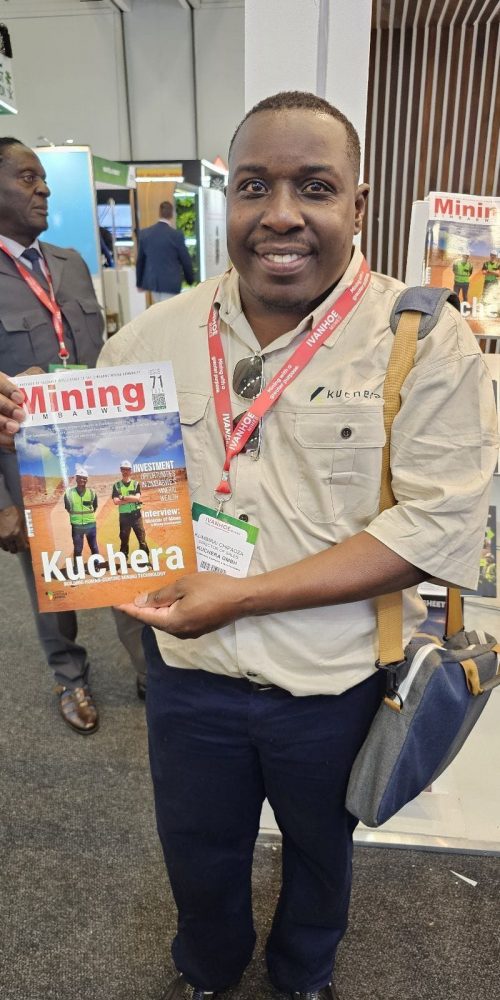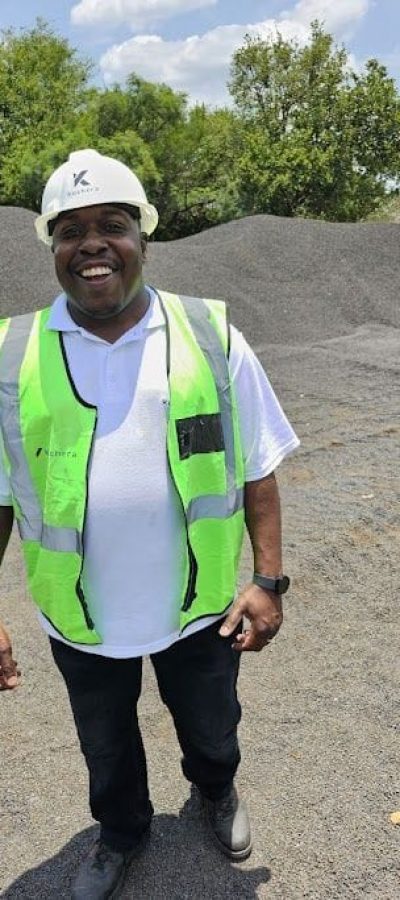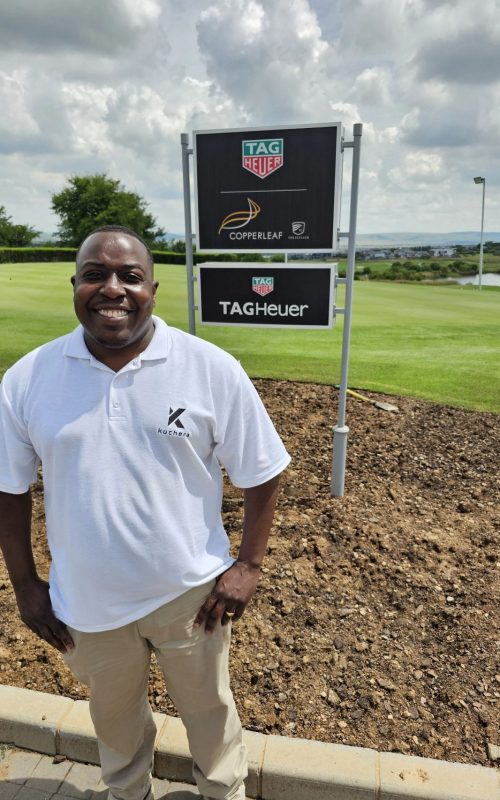Join Beatrice Ama Boatemaa Asante on a journey with individuals who’ve realized their dreams. Today, we chat with Mr. Chipadza Kumbirai, originally from Zvishavane in Zimbabwe. He started his first business in Zimbabwe to becoming a recognized leader in German entrepeneurship.
Beatrice: Kumbirai, could you please share some insights into your background and entrepreneurial journey, highlighting key milestones and experiences that have shaped your path?
Kumbirai Chipadza: My name is Kumbirai Chipadza, and I am a 41-year-old, married father of two. I grew up in Zvishavane, a small mining town in Zimbabwe. I studied Politics, Philosophy, and Law in South Africa. I started my first business at the age of 18 (a video club). I came to Germany as a refugee in 2016, worked in Edeka (bake-off), volunteered at Afrolynk, founded Deutsch Connect in 2018, was voted Ortel African Entrepreneur of the Year 2021, and was chosen as one of 40 African and German young business leaders to accelerate economic cooperation between Africa and Germany. I graduated from Berlin Startup School and joined the Beam Berlin Entrepreneur in Residence program, leading to Kuchera being started and receiving a seven-figure investment.
Beatrice: Reflecting on your entrepreneurial journey, can you discuss a significant setback or failure that ultimately led to personal or professional growth?
Kumbirai Chipadza: While still in Zimbabwe in 2012 and 2013, together with two Co-Founders, we hosted an entrepreneurial show called My Own Boss. It was well marketed and publicized across the country, but ultimately, we failed to make any money. It taught me business principles and that you must always have the answer to “How do we make money?” Also, fame does not equate to money (literally translated from Shona).
Beatrice: Describe a tough decision you’ve had to make as an entrepreneur, and the lessons learned from navigating it successfully.
Kumbirai Chipadza: In 2016, I had to leave Zimbabwe. At the time, our company Moctel was involved in a multi-million dollar electrical reticulation project in Harare. I had to leave everything and start from zero in a foreign land where I could not even speak a word of the language. I learned that in life, nothing is permanent. I also learned that bad things can happen to you so that better things can come your way.
Beatrice: How do you approach challenges and obstacles in your entrepreneurial ventures, and what strategies have proven effective in overcoming them?
Kumbirai Chipadza: I have learned never to make emotional decisions or decisions in haste. I also have a solid base of mentors starting within my own home. My wife is the complete opposite of me, and where I am a “glass is half full” person, she is a “glass is half empty” person, which enables me to see things in a different light. I have a life mentor and a business mentor. I also walk 10km, 5 times a week, just to relax and take time away from entrepreneurial challenges.
Beatrice: Is there a particular guiding principle or piece of advice that has strongly influenced your entrepreneurial endeavors? If so, how has it impacted your approach to business?
Kumbirai Chipadza: I’m a firm believer in “Your network is your net worth,” and I always say, “If you are the smartest person in the room, then you are in the wrong room.” I want to continuously learn, and I surround myself with people I can learn from (LinkedIn is such a platform).
Beatrice: Share a moment when you stepped out of your comfort zone as an entrepreneur, and the insights gained from taking that risk.
Kumbirai Chipadza: When I joined the Beam Berlin program, I had no prior experience in telematics and mining. Together with my Co-Founder, we had to start from zero and be involved in product development (hardware and software) as well as learn the culture in mining and entering a new ecosystem altogether. Nearly two years later, I could say we have done well.
Beatrice: Discuss a time when you had to confront and conquer fear in your entrepreneurial journey, and how it impacted your approach to risk-taking and decision-making.
Kumbirai Chipadza: My greatest fear is failure, and this is what drives me. By acknowledging fear as a natural part of the entrepreneurial journey, I’ve learned to channel it into motivation, resilience, and strategic decision-making. We stood a chance to pitch for a million euros for investment, and during those three months, there were a lot of sleepless nights and nightmares in between. At the end, we decided to go with our instinct and be ourselves, and the rest is history.
Beatrice: In facing setbacks or challenges as an entrepreneur, what strategies have you employed to stay resilient and keep moving forward?
Kumbirai Chipadza: As mentioned above, it’s important to have a strong support system (family, friends, mentors). I also read a lot and learn, and people like Vusi Thembakwayo inspire me. “Shoe Dog” by Phil Knight (Founder of Nike) is also my go-to book when times are tough. As a Christian, I also meditate and ask for wisdom and direction from the Lord to make the right decisions.
Beatrice: How have relationships with partners, mentors, or collaborators influenced your entrepreneurial journey, and is there a specific relationship that has been particularly impactful?
Kumbirai Chipadza: My entire journey has been about partnerships, collaborations, and having strong mentors. Along the way, I have had mentors like Munyaradzi Hwengwere, Moses Acquah, Thomas Andersen, Constantin Schmutzler, and Jesper Bang-Olsen. One of my favorite sayings is “We don’t compete, we collaborate.” From the abovementioned, I have learned all I know and I keep learning.
Beatrice: Describe a moment of clarity or realization that changed your perspective on entrepreneurship, and how it has shaped your business strategies moving forward.
Kumbirai Chipadza: A moment of clarity came when I realized the transformative potential of entrepreneurship to drive positive change and create lasting impact. The ability to inspire young people and to have a random person saying you changed their life is a humbling feeling. This realization shifted my perspective on business from a pursuit of profit to a mission-driven endeavor focused on solving meaningful challenges, empowering communities, and leaving a legacy of innovation and inspiration.
Beatrice: Looking back, what is one lesson you wish you had learned earlier in your entrepreneurial career, and how has it influenced your subsequent decisions and actions?
Kumbirai Chipadza: Do not burn bridges.
Beatrice: Reflecting on your entrepreneurial journey, what legacy do you hope to leave behind, and what advice would you give to aspiring entrepreneurs?
Kumbirai Chipadza: “Looking back on my journey, I’m proud to say that my legacy is all about helping others find their way and make a positive impact. Coming from Africa and starting a business in Germany wasn’t easy—I faced a lot of challenges as a refugee. But through it all, I learned that with determination and passion, anything is possible. My advice to aspiring entrepreneurs is simple: Stay curious, be resilient, and never give up. The power of simplicity, working together, and never losing sight of your goals can lead to amazing things. By staying true to our purpose and striving for excellence, we can build a brighter future for everyone.”
Summary
Kumbirai Chipadza’s journey is a testament to resilience and determination. From starting his first business in Zimbabwe to becoming a recognized leader in German entrepreneurship, he has faced challenges head-on, drawing wisdom from setbacks and leveraging the power of collaboration and continuous learning. His legacy is one of empowering others, driving positive change, and inspiring the next generation of entrepreneurs to pursue their dreams with passion and purpose.











